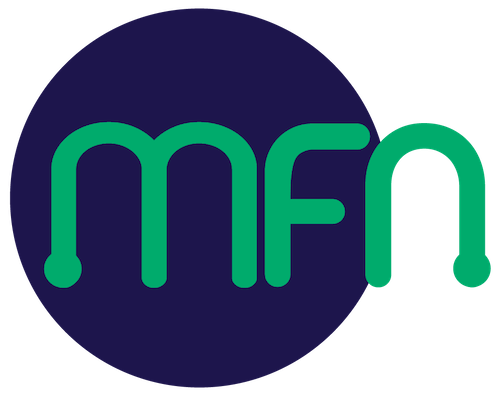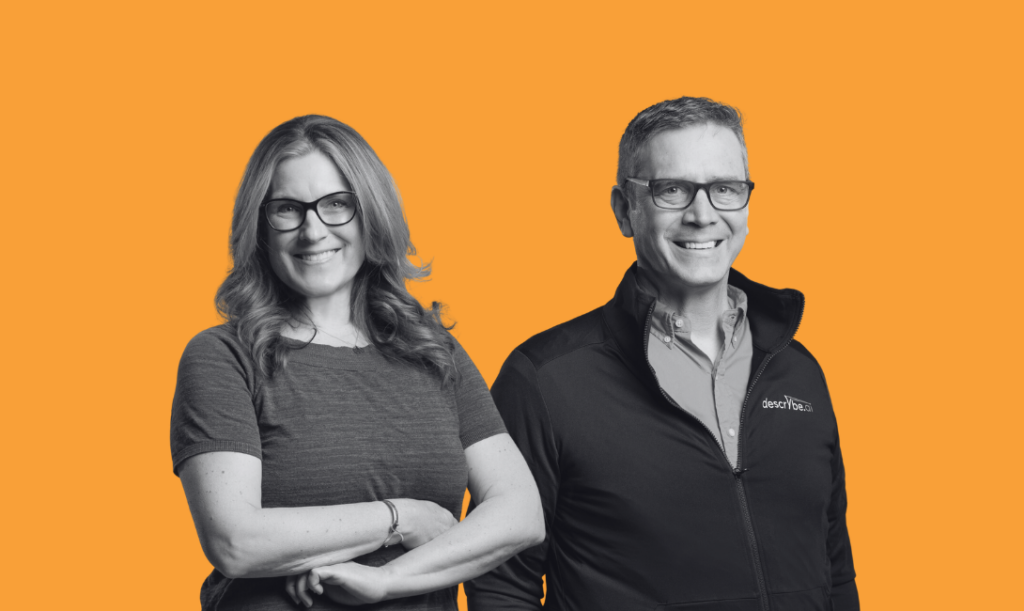With minimal legal background, a husband-and-wife couple are approaching the first anniversary of launching descrybe.ai, a free search engine that summarizes judicial opinions using Artificial Intelligence (AI).
According to co-founders Kara Peterson and Richard DiBona, the birth story of descrybe.ai is nontraditional compared to other Massachusetts startups. Peterson is a seasoned marketing executive in Boston and comes from a communications background with a focus on social justice. DiBona has over 10 years of experience as a successful software engineer. With the couple’s built-in expertise and full-time jobs, they noted that descrybe.ai came to fruition without the financial barriers and buy-ins that many startups contend with.
Their vision for descrybe.ai came about indirectly through a personal issue the couple was involved in. While researching the law related to this issue, they realized the challenge behind googling legal cases without knowing the exact keywords.
“Legal tech is its own little world, and justice tech is a subset,” Peterson said. “We decided to take away the barriers through the development of our specialized search engine. With things moving so fast with AI, we just needed to get out there and get known. That helped us gain a lot of traction and trust.”
Peterson and DiBona are on a mission to level the playing field by offering descrybe.ai’s service for free and believe that the democratization of information is crucial for a functioning society. They noted that solo practitioners, journalists, or others interested in legal research are currently priced out of the legal AI market.
“People measure success in money and how much you’ve raised, but there are other ways to feel great about what you’re doing,” DiBona said. “We’re doing what we love, and the money will follow. I feel confident about that.”
Peterson said there’s a duality to the narrative of success. One side, she explained, may involve working for a nonprofit and being paid low wages but feeling positive about the impact of your work. The opposite side, she added, may involve working for a large corporation with a great salary but for potentially less satisfying reasons.
“Let’s reimagine what success looks like for entrepreneurs and how our funding mechanisms are structured,” Peterson said. “With AI, we have an opportunity to show the world how to do this right.”
The database currently includes more than 3.3 million judicial opinions from across the U.S. These include all available state supreme and appellate opinions since 1980, all federal, district, and appellate opinions since 1980, and all U.S. Supreme Court opinions loaded and searchable since the early 1800s.
Outside of deciding what service to create, the co-founders had to do some leg work to access the cases. DiBona noted that two key players in legal research, who have also introduced AI-Assisted features, are LexisNexis and Thomson Reuters. Since accessing those services on a scale needed for their project would be cost-prohibitive, he added, they instead turned to the Harvard Caselaw Access Project.
Between 2013 and 2018 the Harvard Law School Library digitized over 40 million pages of U.S. court decisions in collaboration with legal startup Ravel Law, which established a dataset of over 6.7 million cases that represent more than two centuries of U.S. legal history. In addition to this project, descrybe.ai partnered with the Free Law Project, which curates and provides free, public, and permanent access to primary legal materials as well as developing technology for legal research and innovation.
The search engine can be used for a variety of legal matters, from complex cases to commonplace occurrences (for example, someone slipping on ice outside of a business, a child getting bitten by a dog, or a tenant being evicted). Peterson said descrybe.ai can be useful to compare former cases and make a future opinion about a current case.
In the short time since opening descrybe.ai to the public, the co-founders have started receiving user feedback, such as a video testimonial from a lawyer in Texas, and praise from professors who have their students use the service.
While able to launch descrybe.ai by bootstrapping, and acknowledging that theirs is not a typical founder’s story, Peterson and DiBona said they share the same values as other entrepreneurs and hope to add to their team with advisors in Massachusetts.
“If you’re in the early stages and believe in your product, don’t give up,” DiBona said. “If you have the right type of skills, a good idea, and you can get it out there without funding, you earn trust and will eventually get more attention from investors. They want to see that it works first.”




